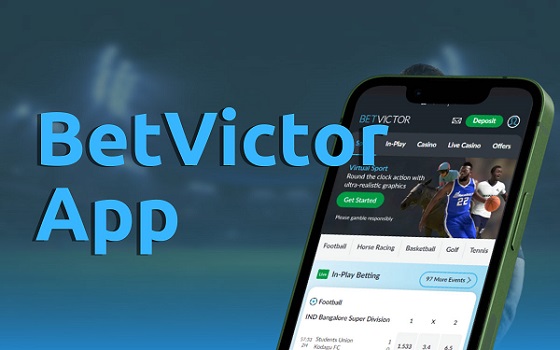Also Interesting
Alberta’s iGaming Breakthrough: What New Online Casino Laws Mean for Players

After years of waiting, Alberta is finally stepping into the modern era of online gambling. The province’s new Bill 48, known as the iGaming Alberta Act, has officially set the stage for a regulated online casino market expected to launch in early 2026.
This might sound like a small policy shift, but for Alberta players, it’s a big deal. Until now, there was only one legal option for casino and sports betting. That’s about to change. Bill 48 will open the door for multiple licensed private operators to join the market, bringing more choice, better competition and much stronger protections for players.
What Bill 48 changes
Bill 48 creates a brand-new Crown agency called the Alberta iGaming Corporation (AIC). Its job is to oversee online gaming in the province, including licensing operators, enforcing compliance and making sure games are fair and responsible. This change is also expected to boost the economy with an increase in tax revenue from the igaming industry. This could have a significant economic benefit for the province.
In short, the law ends the government monopoly and replaces it with a competitive but regulated market. Private companies will be able to apply for licences to run their own online casinos and sportsbooks, similar to the successful model used in Ontario. Once the system is live, you can expect to see many familiar names from the online gaming world operating legally in Alberta.
Why it matters for players
For years, thousands of Albertans have been playing on offshore “grey-market” casino sites because there simply weren’t enough legal choices. The problem is, those sites operate outside provincial law, which means there are no guaranteed protections if things go wrong, creating a huge consumer protection issue and making users even more vulnerable to scams and fraud.
With Bill 48, that’s changing. Licensed Alberta casinos will have to:
- Verify players are 18 or older.
- Offer responsible-gaming tools like deposit limits and time-outs.
- Use independent audits to make sure every game is fair.
- Provide clear terms for bonuses, promotions and withdrawals.
This framework gives players more freedom to choose and more security when you play online. It offers the best of both worlds: a fun and competitive environment, while still being safe for users.
What to expect when the market opens
Once the new system goes live in 2026, the Alberta iGaming Corporation will start issuing licences. Players will see more variety than ever before: new sites, new promotions, faster withdrawals and smoother mobile experiences.
Competition in the industry is expected to drive:
- Bigger welcome bonuses and loyalty rewards.
- Better customer support and local payment options.
- A huge range of games from classic slots and blackjack to live-dealer tables and sports betting.
And because everything will be provincially regulated, you will have peace of mind knowing the games are fair and your money is protected.
Where you can find the top Alberta online casinos
When the market officially launches, you will probably be wondering where you can find the top Alberta online casinos that meet the province’s new rules. The safest bet is to stick with trusted, Canadian-focused comparison guides that review only regulated operators.
One great resource is onlinecasino.ca. This keeps tabs on legal casino sites available to players and covers everything from bonus offers and payment options to mobile compatibility and customer service. Guides like this will be especially useful during the first few months after launch, helping players separate legitimate and regulated casinos from those that are still operating offshore.
Learning from Ontario
If you’re wondering how this might play out, look east to Ontario. When Ontario launched its open iGaming market in 2022, more than 50 operators were licensed within the first year. The result? Safer play, better competition and a shift away from unregulated websites.
According to iGaming Ontario, over 80% of play in that province now happens on regulated sites. Alberta hopes to mirror that success, giving players more options while keeping money in the local economy and ensuring everyone plays responsibly.
Responsible gaming comes first
One of the best parts of Bill 48 is its strong focus on player protection. Every licensed operator will have to build responsible-gaming tools directly into their platforms.
That means you will see features like:
- Central self-exclusion programs are applied across all casinos.
- Limits on how much you can deposit or bet.
- Clear information and support for anyone who feels their gambling is getting out of control.
Alberta’s goal isn’t just to create a profitable iGaming market; it’s to create one that’s sustainable and safe for everyone involved.
Looking ahead
With Bill 48 now passed, Alberta is on track to become Canada’s next big iGaming hub. The Alberta iGaming Corporation is currently finalizing regulations, licensing standards and consumer protection policies.
If everything goes to plan, the first wave of regulated online casinos could go live by early 2026. In the meantime, Alberta players can get ready by learning how to spot licensed platforms, setting their own responsible gaming limits and keeping an eye on trusted sources for the latest news and updates.
Also Interesting
Cryptocurrency and Online Casinos and What’s Next for Bitcoin and Ethereum Payments: Overview From Specialists at Rabona Betting

Cryptocurrencies are becoming more common in everyday transactions. You can purchase things via digital currency on different sites and the system automatically exchanges it into the fiat currency like CAD.
This payment method is also popular at online casinos because of fast transactions, specifically, withdrawals. You can deposit money and place a bet on Napoli FC Rabona Canada, play various games, and then withdraw winnings the way you deposited funds. This article explores this interesting opportunity and what may come in the future.
Why Casinos Use Cryptocurrency
Online casinos like Rabona betting use cryptocurrency because it transfers funds faster than traditional payment systems. Bitcoin and Ethereum transactions don’t rely on banks, so transfers complete within minutes.
Players from countries with financial regulations use crypto wallets to send or receive funds without card rejections or blocked transfers. Casinos also cut costs since they don’t pay high processing fees to banks or card companies.
Crypto systems record each transaction on a blockchain ledger, so every move of money is visible and cannot be changed. That reduces disputes over withdrawals and deposits since each transaction’s info is available in public records.
Casinos that accept Bitcoin or Ethereum attract a wide range of players who prefer anonymity. Traditional payment systems require full identity checks, while crypto transfers use wallet addresses.
Players still need to pass KYC checks under legal standards, but crypto wallets give more privacy since they don’t require your bank data.
How Bitcoin and Ethereum Shape Casino Payments
Bitcoin is the top choice for online gamblers because most payment systems already integrate it easily. It allows deposits and withdrawals in similar amounts to bank transfers.
Sites like Rabona betting often provide it for high-volume transactions because cryptocurrency networks handle large sums safely and quickly. Digital currencies stands out because they allow smart contracts.
These contracts handle payouts automatically when a condition is met. For example, a casino game that uses an Ethereum contract can send a payout as soon as a winning combination appears, without manual approval.
Players deposit money and the casino automatically exchanges it to CAD. Thus, users can play bets in a currency they’re used to, and withdraw via the same crypto system that converts CAD to BTC, ETH, etc.
What’s Next for Bitcoin and Ethereum in Gambling
Future development aims to increase transaction speed and reduce fees. Bitcoin developers work on the Lightning Network, which processes microtransactions instantly through off-chain channels. That system suits online casinos since it handles many small bets quickly.
Ethereum’s developers improve scalability through updates that raise network capacity and lower gas costs. That’s one of the reasons why Ethereum switched from PoW to PoS.
Conclusion
Casinos like Rabona betting and others keep expanding payments to include more currencies like Solana, Cardano, Avalanche, or stablecoins like USDC, EURC, EURQ, and more. Most cryptocurrencies process transactions faster and provide some sort of anonymity, so players will continue using them at online casinos.
Also Interesting
Alberta takes a step towards iGaming legislation

Alberta is moving closer to joining the growing list of Canadian provinces embracing regulated online gambling. The province’s proposed Bill 48, known as the Alberta iGaming Act, has cleared its second reading in the Legislative Assembly, marking a significant milestone toward establishing a competitive, open iGaming market. For many observers, this signals that Alberta could soon follow in Ontario’s footsteps, paving the way for private operators to enter what’s currently a government-run landscape.
At the heart of the bill is the creation of the Alberta iGaming Corporation, an independent body that would oversee licensing, compliance, and responsible gaming initiatives. Its responsibilities would include setting technical standards, enforcing fair play through random number generator integrity checks, and ensuring operators meet anti-money laundering requirements. A board of seven directors, appointed by the Minister of Service Alberta and Red Tape Reduction, would guide the new regulator’s operations.
Support for the bill appears solid, with the United Conservative Party holding a majority in the legislature. The expectation is that once it passes through committee review and any amendments are finalized, the province will begin building the framework for its digital gaming market. Industry watchers are already predicting that the new system could roll out by mid-2026, with the first operators going live soon after.
The model Alberta is chasing looks a lot like Ontario’s, which launched its open iGaming market in 2022 and now records over a billion dollars in monthly wagers. Alberta’s approach aims to balance opportunity and oversight, letting gaming operators compete alongside the government’s Play Alberta platform. This move is expected to boost competition, variety, and consumer protection all at once, and could significantly contribute to the local economy. It just makes sense that any Canadian online casino targeting this North American market would welcome the news, as Alberta represents a massive untapped audience eager for safe and modern gaming options.
Consumer safeguards are a core part of Bill 48’s design. A centralized self-exclusion system would allow players to opt out of all licensed platforms through a single registration. There will also be mandatory age verification, betting limits, and spending alerts to promote responsible play. Revenues from the new market are expected to fund social programs and gambling treatment initiatives, ensuring that the benefits extend beyond the casino floor.
A big part of the motivation behind Bill 48 is to steer players away from unregulated offshore sites. Right now, thousands of Albertans gamble online through platforms that operate outside Canadian jurisdiction, offering little in the way of player protection or accountability. A legal, competitive market within Alberta would not only keep those dollars at home but also attract marketing investment and innovation from major operators.
If all goes as planned, Alberta’s iGaming Corporation could begin issuing licenses by next year, setting the stage for a 2026 launch. The province’s measured approach shows a clear preference for getting the framework right rather than rushing it through. For local players and the gaming industry alike, Alberta’s next chapter in digital entertainment is starting to take shape, and it looks like a winning hand.
-

 armed forces2 days ago
armed forces2 days agoIt’s time for Canada to remember, the heroes of Kapyong
-

 Digital ID2 days ago
Digital ID2 days agoCanada moves forward with digital identification for federal benefits seekers
-

 Daily Caller2 days ago
Daily Caller2 days agoUS Nuclear Bomber Fleet Shares Fence With Trailer Park Linked To Chinese Intel-Tied Fraudster
-

 Alberta2 days ago
Alberta2 days agoSchool defunding petition in Alberta is a warning to parents
-

 Daily Caller2 days ago
Daily Caller2 days agoLaura Ingraham Presses Trump On Allowing Flood Of Chinese Students Into US
-

 espionage2 days ago
espionage2 days agoChinese-Owned Trailer Park Beside U.S. Stealth Bomber Base Linked to Alleged Vancouver Repression Case
-

 Business2 days ago
Business2 days agoLiberals refuse to disclose the amount of taxpayer dollars headed to LGBT projects in foreign countries
-

 Environment1 day ago
Environment1 day agoThe Myths We’re Told About Climate Change | Michael Shellenberger






